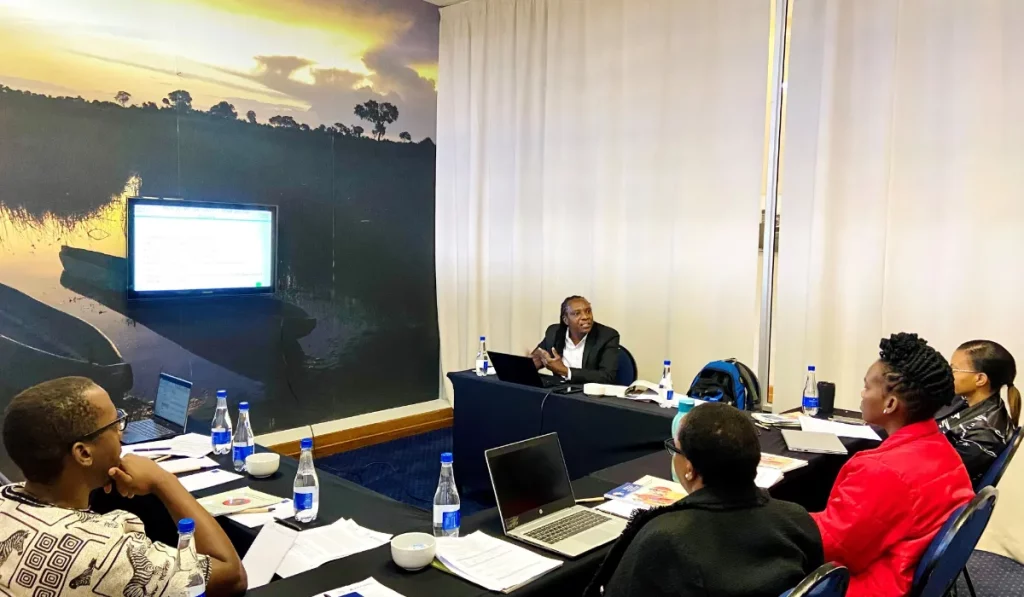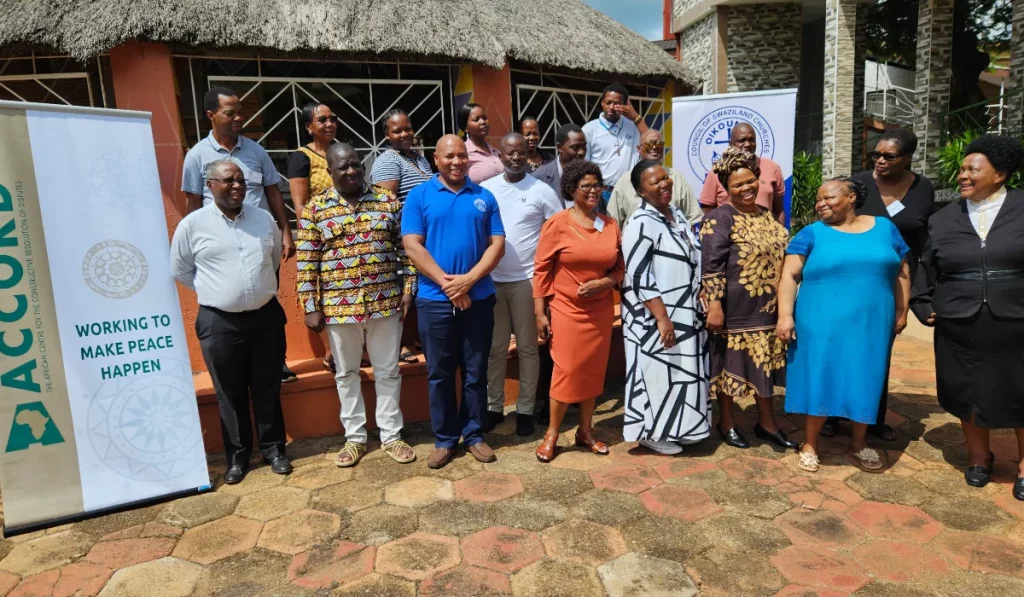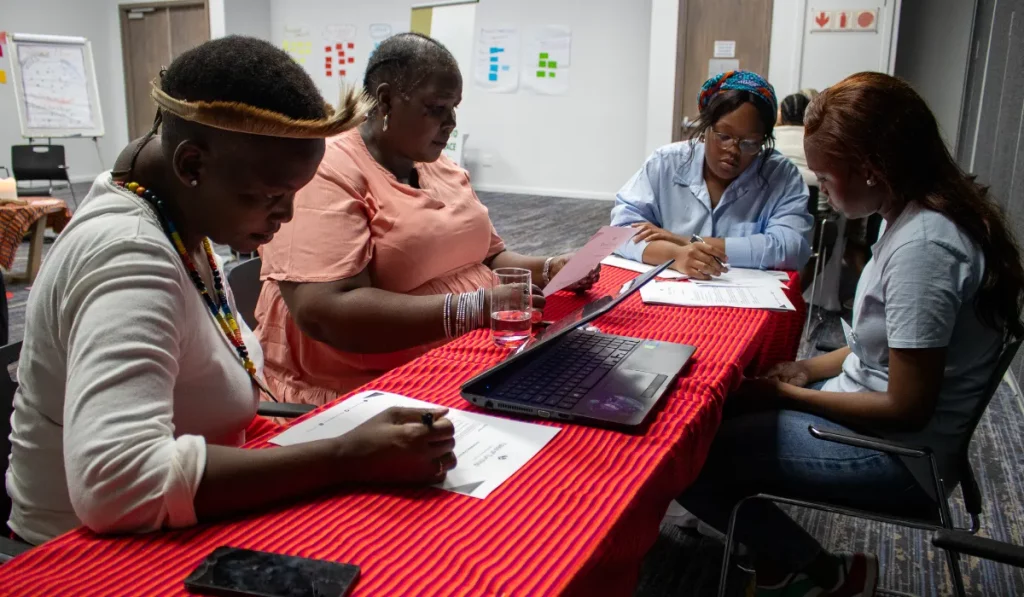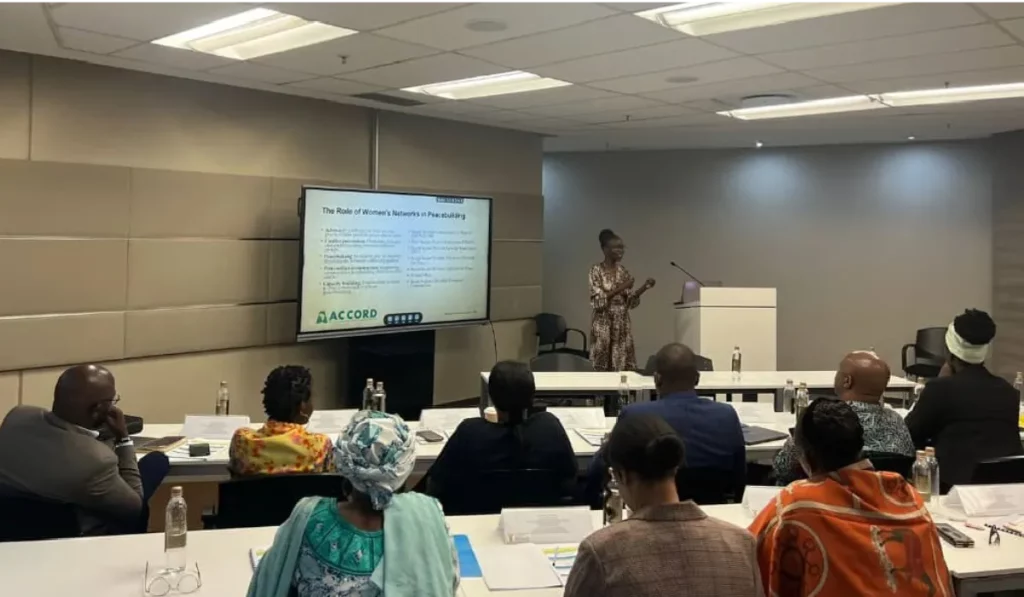Under the auspices of the Training for Peace (TfP) in Africa Programme and the African Peacebuilding Coordination Programme (APCP), ACCORD has hosted a South African Civilian Capacities Roundtable with key South African stakeholders in the peacekeeping and peacebuilding fields. Developments in the peacekeeping-peacebuilding nexus have focused attention on civilian roles and expertise in peace operations, and enabled new and appropriate responses to challenges faced in post-conflict societies. This meeting was aimed at improving civilian deployments for South Africa’s bilateral assistance to, and multilateral engagements in, post-conflict societies.
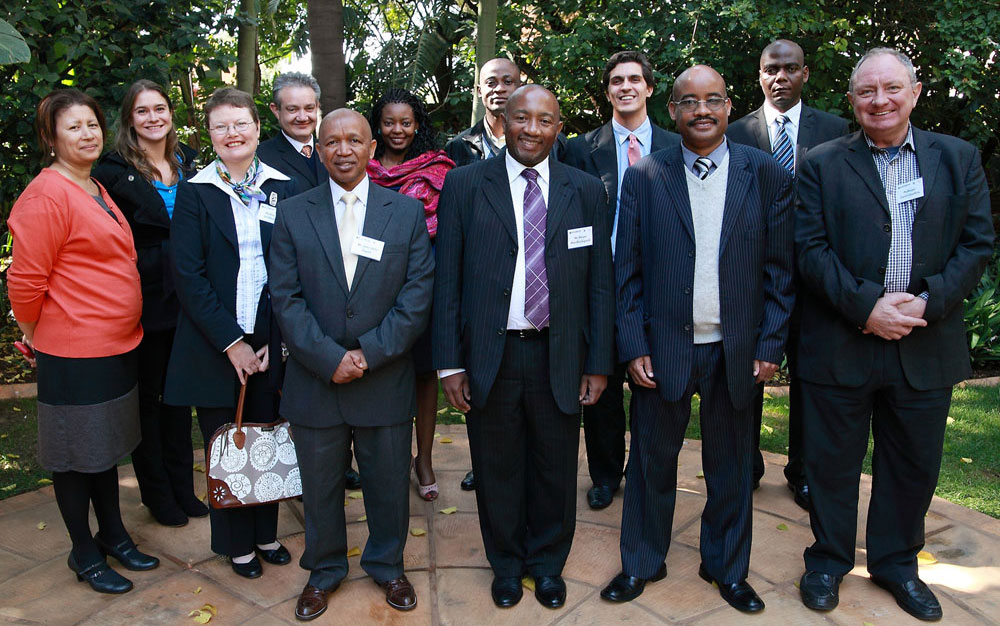
The SA Civilian Capacities Roundtable was held from the 14-15 May, in Pretoria, South Africa, and attended by representatives from: the Centre for Defence and Security Management; University of KwaZulu-Natal (UKZN); African Development Bank; South African Institute of International Affairs (SAIIA); The Africa Institute for South Africa (AISA); South African Human Rights Commission; and The Institute for Global Dialogue (IGD). ACCORD was represented by Ms. Barbara Mohale, Peacekeeping Programme Officer, Mr. Gustavo de Carvalho, Peacebuilding Coordinator, and Ms. Lesley Connolly, Peacebuilding Programme Officer.
In 2012, ACCORD conducted a baseline study with key stakeholders from governments and civil society in order to assess its capacity processes for the facilitation and mobilization of such capacities for contributing to its bilateral and multilateral engagements with post-conflict countries. The preliminary findings of this assessment have been written in the Draft South African Country Case Study Report. These findings were presented at the Civilian Capacities Network (comprised of Brazil, Russia, India, China, South Africa, Indonesia, Norway and Turkey) meeting in Brazil in November 2012. As a result of the seminar in Brazil, it was decide that the Network should continue to update the status of civilian capacities mechanism in their respective countries. The findings of the South African Case Study Report, initiated in 2012, was be presented and assessed among key stakeholders. Thus, discussions during the Roundtable focused on an analysis and reflection upon SA’s experiences concerning building and sharing of capacities in relation to safety and security, economic revitalisation, political processes, justice, foreign policy and multi-lateral involvement in post–conflict countries. The aim was to gather further information about the status of civilian capacities mechanisms in SA with the intention of updating and finalising the report. In addition, it also aimed to root the discussion around SA’s available and potential civilian capacities (in government and other sectors), and its mechanisms to facilitate its mobilisation for assistance to post-conflict societies.
The Roundtable reflected on ACCORD’s objective towards contributing to civilian capacities in order to foster knowledge and experience sharing for the collaborative development of respective national civilian capacities and the contribution to the realisation of an African renaissance.
The TfP Programme is an initiative funded by the Norwegian Ministry of Foreign Affairs, and the APCP, funded by the Ministry for Foreign Affairs of Finland.




